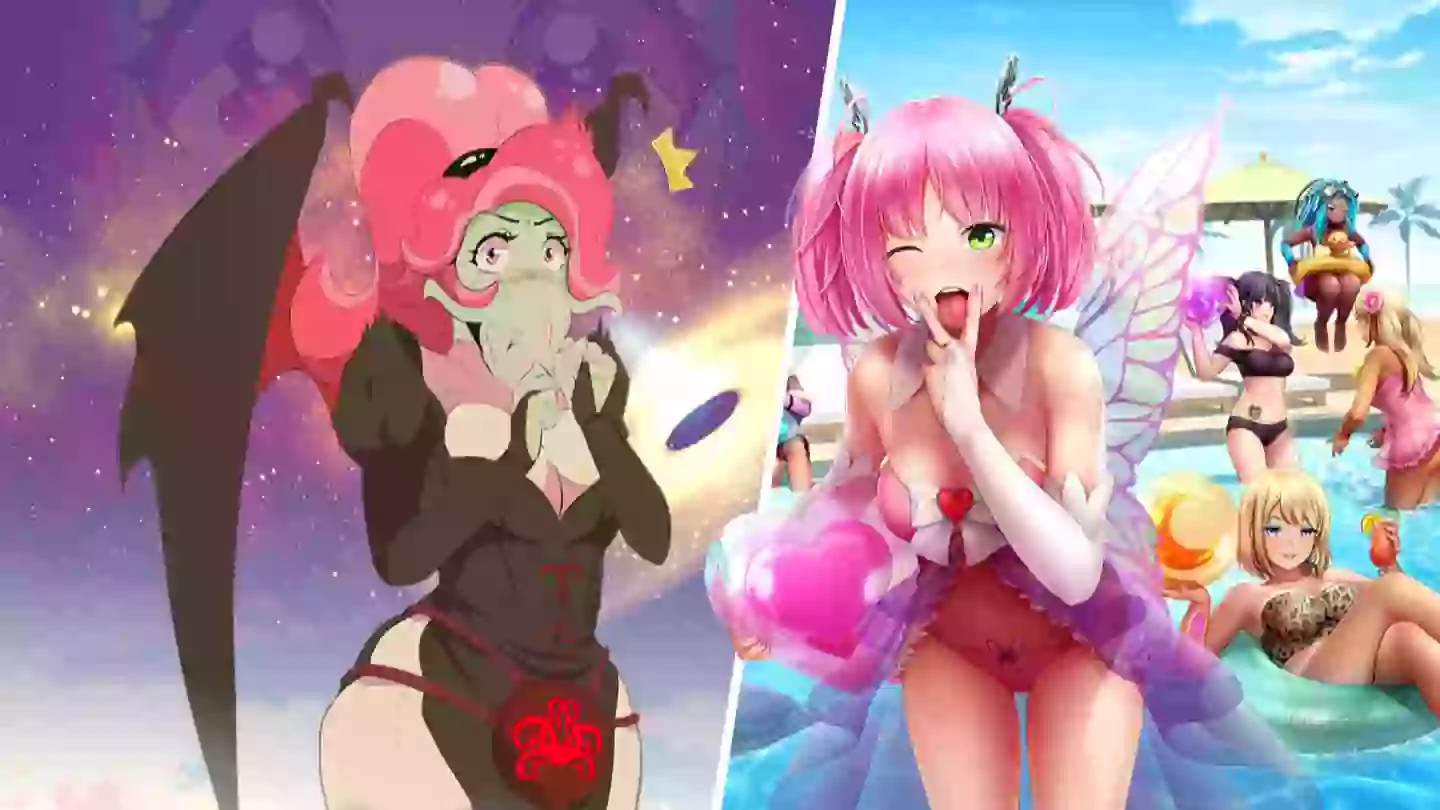
You know those games that just scream “problematic” in every way? We secretly like them. So many of us pretend not to, but we feel able to escape the scorn of disapproval because we’re simply playing a game; we didn’t create the problem, someone else did. That logic helps us feel better whenever we wince at an inappropriate “joke” or the over-the-top sexualisation of women, like we see in HuniPop 1 and HuniPop 2: Double Date.
Those two Steam games in particular are so difficult to watch and/or play, yet so many of us do. Why? It could be argued it’s because they’re good, or that they’re simply poking fun at the absurdity of men who treat women like pieces of meat, but those reasons are a plaster on a gaping wound – they’re useless and aren’t the real answer.
See what all the fuss is about in Sucker for Love: First Date's trailer!
The real answer is we want to enjoy it regardless of what it represents; it’s the perfect example of cognitive dissonance. I experienced the same reaction when I watched Markiplier’s Let’s Play of HuniPop – I couldn’t justify buying the game for myself, but I wanted to see all the awful things it says and shows, even the NSFW content. I felt free of any judgement, my excuse locked and loaded: “I’m just watching it, I’ve not paid for it”.
Yet, the whole time I kept falling back on that excuse, I gave myself the ick. Those games aren’t entertaining, not even if you say you’re watching it “ironically”, they’re just a way to show ejaculate-covered, big-breasted anime girls. It’s like dressing up erotica as romance novels when all they offer is the most graphic smut you can imagine – it’s simply a change of cover to deceive, a deception we’re privy to.
Advert
It isn’t that these games are dangerous, at least not directly, it’s that they help perpetuate ideologies that we silently let slide despite them going against everything we believe. We might not spew the same beliefs, but by feeding the corporate machine that creates such games, we’re still complicit despite what we tell ourselves to make the pill easier to swallow. When enough of us are using this same skewered logic, it encourages more of the same content to be churned out. This isn’t a case of celebrating kinks like with Baldur’s Gate 3’s sex, these games are markedly different in their exploitation of over-sexualised characters.
Even games that aren’t overly explicit, like Nintendo Switch’s Sucker For Love: First Date, very much function on us thinking it’s okay to make sexual jokes because the characters are mythical creatures and not real women. Yet, we’re forcing them to romance and/or kiss us, which is weird regardless of the characters being fictional. This doesn’t stop me from wanting to play dating simulators whenever I see another potentially disturbing game launch.
I’m addicted to the trash that they promote, even when they’re just straight-up bad. And I’ll do it all while knowing that I am part of the problem 100 percent. Does that justify it or make it okay? Not at all, but as I’ve hypothesised all the way through this article, we’re programmed to enjoy doing the things we know we shouldn’t.
Topics: PC, Steam, Nintendo Switch